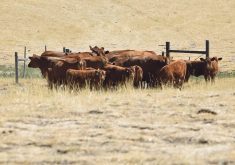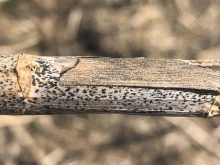It wasn’t the money that brought 57 competitors from 29 different countries to Olds College for the 60th annual World Plowing Championship.
“There is no prize money here, it is bragging rights,” said organizing committee chair Mark Kaun.
The college also has something to brag about; it’s “the only place where a plowing competition has happened twice in the exact same spot,” noted Kaun, adding that organizing the event took four years of effort.
Barry Timbers, Canada’s representative in the conventional plow competition, only had to travel from Sunderland, northeast of Toronto, but said plowing has a special attraction to its devotees and it’s not surprising the event drew competitors from places such as Kenya, Australia, and the Czech Republic.
Read Also

Dairy marketplace faces big changes
Beginning in April, dairy producers will be facing payment changes as processors and industry move to meet consumer demands and trends.
“Why do people show horses? Why do people show cattle? Why do people go to tractor pulls?” he replied when asked why he loves the sport.
This was Timbers’ 11th world championship and likely his last. His father Robert was a competitor at the first World Plowing Championship in 1953, and at age 86 travelled to Olds to watch his son. The younger Timbers has been plowing since age nine, but says this is likely his last event. (He placed 11th overall in the conventional competition, with fellow Canadian Brian Fried, coming in seventh in the reversible category.)
There are young and fresh faces at the competition. The conventional category was won by 24-year-old Barbara Klaus from Austria, who became the first woman to win the golden plow trophy.
But Timbers said many competitors are longtime rivals.
“The old standbys still come. I’ve plowed against some of their fathers,” he said.
To get to the world finals, plowers have to win their respective national competition. John Tracey, who lost to his son Eamonn (third in the conventional category) for the chance to compete in Olds, said he was planning on heading to the Republic of Ireland’s national competition as soon as he gets home — one of about 18 competitions he enters each year.
Entrants are judged on things such as straight lines and ins and outs. They have 20 minutes to complete the opening split and then just under three hours to finish off their 100×20-metre plot. On the first day they competed on stubble plots, while grassland plots were plowed on the second.
“It’s a great sport as well as an art,” said Robert Timbers, who plowed in four world championships before a rule change (since abolished) limited competitors to three championships.
Plots are assigned by draw the night before, and competitors aren’t allowed to speak to anyone once they start plowing, said Anna Marie McHugh, general secretary of the world organization.
“It’s very lonely,” she noted.














